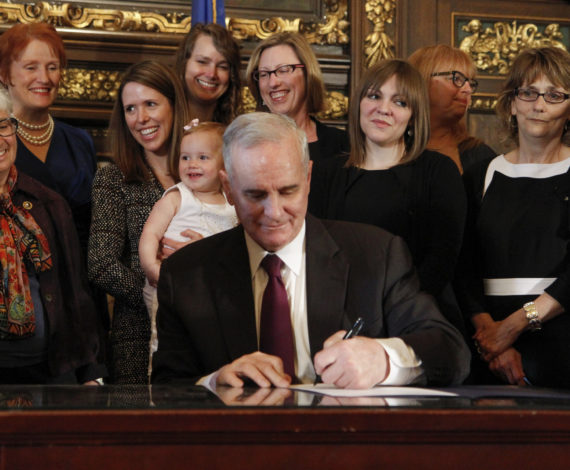
Report of the Minnesota Attorney General’s Advisory Task Force on Expanding the Economic Security of Women
Women in Minnesota continue to experience barriers and challenges to economic security and prosperity despite their critical role in our society, families, and economy. In general, they are paid less than men, are overrepresented in low-paying jobs, take on the majority of unpaid caregiving and housework, and are more likely to live in poverty.
FOR IMMEDIATE RELEASE
March 8, 2022
CONTACT
Noah Parrish, Communications Director
[email protected]
651.432.0171
In February 2021, Gender Justice Advocacy Director Erin Maye Quade was selected to be the co-chair of Attorney General Keith Ellison’s 2-year Task Force on Women’s Economic Security.
On International Women’s Day – March 8, 2022 – Erin joined AG Ellison and the rest of the Task Force on Facebook Live to unveil our report.
Watch here:
Through the Attorney General’s Task Force, we have gained a more thorough understanding of the specific economic issues women in our state – especially Black, Indigenous, Asian and Latina women and femmes – have continued to face as we work to achieve economic security and mobility, including:
- the structural, cultural, and organizational barriers that prevent gender equity in the workplace;
- the legal and regulatory barriers that limit women’s equal participation in the economy;
- the the extent intersectional impact of race, ethnicity, and gender discrimination on the ability of BIPOC’s ability to achieve economic security;
- and the socio-economic impact of the COVID-19 pandemic on women of color.
Plainly, this means we’re digging into issues like affordable child care and caregiving, equal pay barriers and the wage gap, the impacts of systemic racism, Reproductive Justice, and more.
Gender Justice is a leader in Minnesota when it comes to women’s economic security. In 2014, we helped pass the landmark Women’s Economic Security Act (WESA). This Task Force is the continuation of that work as we identify and address the particular barriers holding women back as we make day-to-day decisions about work, money, family, and our dreams.
Children and caretaking are not seen in this country—one of only a few wealthy nations—as a public good. This is the root of why we don’t pay childcare workers a lot: we don’t value people who have children, we don’t value the time it takes to raise healthy children, we don’t create systems to care, educate, feed, be in community with children and leave it up to people to figure it out with a patchwork system.
– Erin Maye Quade, Gender Justice Advocacy Director
Minnesota task force outlines sweeping proposals to improve women’s economic security (Minnesota Star Tribune, March 8, 2022)
Related Work
